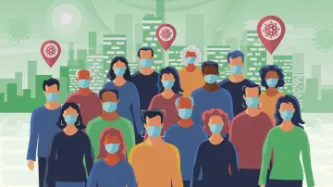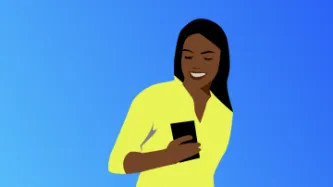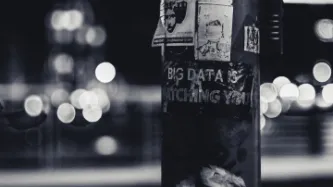Search
Content type: Report
In the months following the beginning of the Covid-19 pandemic, more than half the world’s countries enacted emergency measures. With these measures came an increase in executive powers, a suspension of the rule of law, and an upsurge in security protocols – with subsequent impacts on fundamental human rights. Within this broader context, we have seen a rapid and unprecedented scaling up of governments’ use of technologies to enable widespread surveillance. Surveillance technologies exacerbated…
Content type: Long Read
The defense and protection of the environment continues to come at a high cost for activists and human rights defenders. In 2021, the murders of environment and land defenders hit a record high. This year, a report by Global Witness found that more than 1,700 environmental activists have been murdered in the past decade.
While the issue of surveillance of human rights defenders has received attention, evidence of the surveillance of environmental activists keeps mounting, with recent examples…
Content type: News & Analysis
It is difficult to imagine a more intrusive invasion of privacy than the search of a personal or home computer ... when connected to the internet, computers serve as portals to an almost infinite amount of information that is shared between different users and is stored almost anywhere in the world.
R v Vu 2013 SCC 60, [2013] 3 SCR 657 at [40] and [41].
The controversial Police Crime Sentencing and Courts Bill includes provision for extracting data from electronic devices.
The Bill…
Content type: Examples
When Dallas police posted on Twitter asking for videos of the protests taking place after George Floyd's killing, a flood of videos and images of K-pop stars were uploaded to its anonymous iWatch Dallas tip-off app. Law enforcement can call on vast numbers of networked cameras - from cars, food and retail chains that are typically willing to share with police, law enforcement agencies' own networks of surveillance and body cameras as well as object and face recognition software, protesters and…
Content type: Long Read
The Grand Chamber of the European Court of Human Rights ruled that the UK government’s historical mass interception program violates the rights to privacy and freedom of expression. The Court held that the program “did not contain sufficient “end-to-end” safeguards to provide adequate and effective guarantees against arbitrariness and the risk of abuse.” As a result the Court ruled that UK law "did not meet the “quality of law” requirement and was therefore incapable of keeping the “…
Content type: Explainer
Where are my communications stored?
Text messages/phone calls: Traditional cellphone communications happen over the cellular network. You usually access those with the text message and phone call apps that are provided as standard on your phone. While phone calls aren’t stored anywhere, text messages are stored locally on your and the recipient’s devices. They might also be temporarily stored by the network provider.
Messaging apps: Messaging platforms enable fairly secure communication…
Content type: Long Read
What’s the ruling all about?The Constitutional Court of South Africa in a historic judgment declared that bulk interception by the South African National Communications Centre is unlawful and invalid. Furthermore, the Constitutional Court found that the Regulation of Interception of Communications and Provision of Communication-Related Information Act (RICA) 1) was deficient in failing to provide at least a post-notification procedure for subjects of interception; 2) failed to ensure the…
Content type: Video
Given everything that's happening at the moment around the world, we've decided to postpone our episode on ID in Kenya until next week.
You can listen and subscribe to the podcast where ever you normally find your podcasts:
Spotify
Apple podcasts
Google podcasts
Castbox
Overcast
Pocket Casts
Peertube
Youtube
Stitcher
And more...
Some of the resources we mentioned in the episode can be found here:
ACLU: know your rights: https://www.aclu.org/know-your-rights/protesters-…
Content type: Examples
Recent study shows that Americans are wary of data from smart speakers being used in criminal investigations, the Pew Research Center reported. A recent study showed that 49% of Americans answered that it is unacceptable for smart speakers companies to share audio recordings of their customers with law enforcement in order to help with criminal investigations. Only 25% said it is acceptable. Aparently, this result contrasts with some other data use practices measured in the same survey. For…
Content type: News & Analysis
Cloud extraction allows law enforcement agencies to take huge amounts of your data from the Cloud via a legal back door. If law enforcement seize your phone or take it from a victim of crime, they can extract tokens or passwords from the device which lets them get access to data from apps such as Uber, Instagram, Slack, Gmail, Alexa and WhatsApp.
In so doing, law enforcement agencies can avoid official channels through cloud companies such as Google, Apple…







